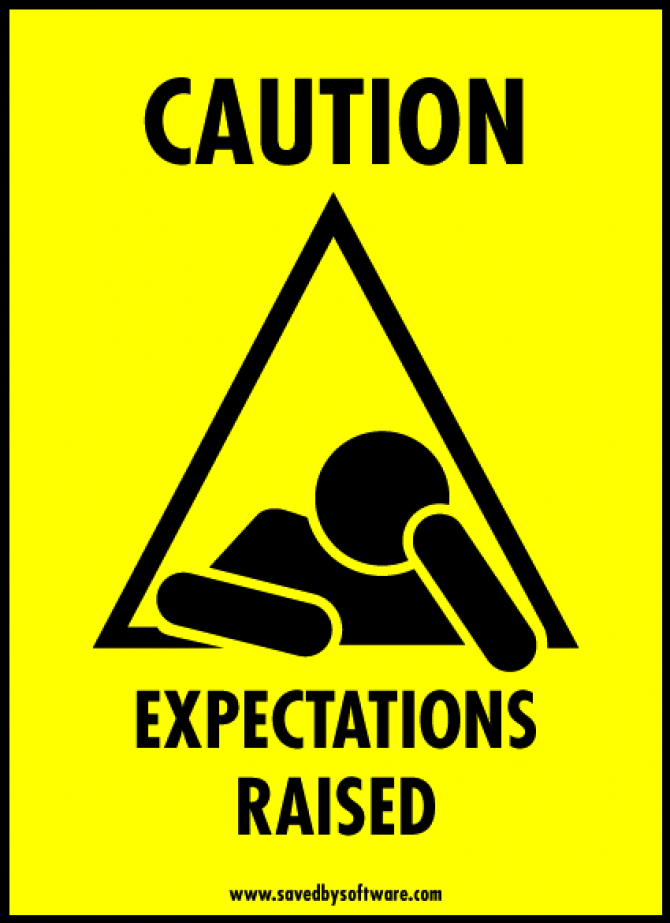Musings on Self-Esteem
We heard from a number of incredible thinkers at our recent 2012 Self-Management Symposium (the best so far, by the way). One of our speakers, John Allison, the former CEO of BB&T (check out the video here—you need to register to view it, but registration’s free and there are a lot of cool benefits) gave a deeply profound talk that really forced me to think deeply about our shared values here at Morning Star and the Self-Management Institute.
He spoke on BB&T’s 10 core values, and how those core values have enabled continued success at BB&T.
One that struck me as a “non-mainstream” value (like integrity—everybody SAYS that integrity is a value) was Self-Esteem. Allison made the point that Self-Esteem is a good thing—that you (as an individual) must believe that you are capable of being good, and that you have the moral right to be happy.
But then he went on to discuss the source of self-esteem. Self-esteem can’t be “granted” or “bestowed” by someone else; “you look good in that dress” isn’t really a source of true self-esteem. In fact, many of the things that we look to as a source of self-esteem (like conspicuous consumption or cosmetic surgery) amount to no more than a very, very poor substitute for true self-esteem. Real self-esteem comes from doing productive work. It comes from creating value for others. It’s the accumulation of personal Pride (another of BB&T’s core values), which we derive by doing work that has a purpose, using reason, and exercising independent thinking (another value), in integrity with our principles (yet another value).
Think about that for a second: in order to have self-esteem, you have to have a sense of personal pride in what you do. In order to have pride in what you do, you have to feel that the work you do is productive—that it has a purpose, that you are doing good. Further, in order to have personal pride, and by extension, self-esteem, you have to be working in an environment that allows you to think independently, to exercise reason and to use your individual mind to make optimal and rational decisions.
So maybe you don’t think self-esteem matters all that much; I’d disagree. Answer this question: do you think, in general, people prefer to feel good or bad about themselves? Of course, I think we all agree that people prefer the former. What’s the cost to our organizations, though, when people don’t feel good about themselves? Think about the last time you felt like you were doing completely valueless work—work that was completely irrelevant or unproductive. Was it an invigorating experience? Did it inspire you to lofty, new heights of innovation, productivity and performance? Of course not; that feeling is incredibly demotivating. And, in fact, I suspect millions of people, in countless organizations, are desperate to leave their current job—a job that they hate; why? I believe it’s because their current role is lacking at least one of the key ingredients necessary for individuals to build self-esteem.
Which brings us to what is, I believe, the irony here: if this idea—that self-esteem is the result of doing productive work that has a purpose, and that allows you to exercise reason and independent thinking—has any merit, it means that we humans come pre-loaded with an internal motivational system. We are all internally motivated to do things that will give us a sense of personal pride, and build our self-esteem. And if we do, in fact, have that internal drive for self-esteem, it means that good, productive work is a part of our nature
So why, then, do so many organizations spend so much time talking about “motivating their employees”? I’ve thought a lot about this, because the idea that employees need motivating seems to be at odds with the idea that employees have a internal drive for self-esteem that can only be fulfilled by doing productive work well. The only conclusion I can come to is that far too many organizations have put in place systems that actually REMOVE those ingredients that are so vital to people cultivating healthy self-esteem. They’ve eliminated a sense of purpose from jobs in the enterprise; people don’t have a sense that what they are doing has any large purpose whatsoever. Or people in the organization see their jobs as unproductive—as not doing good things for people (think: mind-numbing, civil servant/bureaucrat). Or perhaps it’s that people in the organization aren’t allowed to exercise reason—to think always, and to question authority. Or perhaps it’s that people aren’t allowed to think independently—they aren’t allowed to exercise their individual judgment to make rational and optimal decisions that they are more than capable of making.
I don’t think I’m too far off the mark when I surmise that many jobs in many modern corporations don’t have most of those ingredients. So it’s no surprise, then, that people in those organizations aren’t motivated—self-esteem (that internal motivator) isn’t a real possibility given the absence of those key ingredients, so people simply disengage and “put in their time”. And so management in those organizations turn to experts seeking answers to, “how do we motivate our employees and achieve higher engagement levels?” when their organizational systems were the culprit that killed the naturally present motivation in the first place!
Irony.
So, here’s my question to you:
Does your organization systematically ensure that people who are a part of that organization can find personal pride in their work, and accumulate healthy self-esteem, through:
- Doing productive work that has a purpose—doing good things that matter?
- Allowing people to use reason—to think actively, and to question authority?
- Allowing people to think independently—to have control over their work, using their individual mind to make optimal and rational decisions about their work?
– Originally published by The Self-Management Institute on August 21, 2012.






